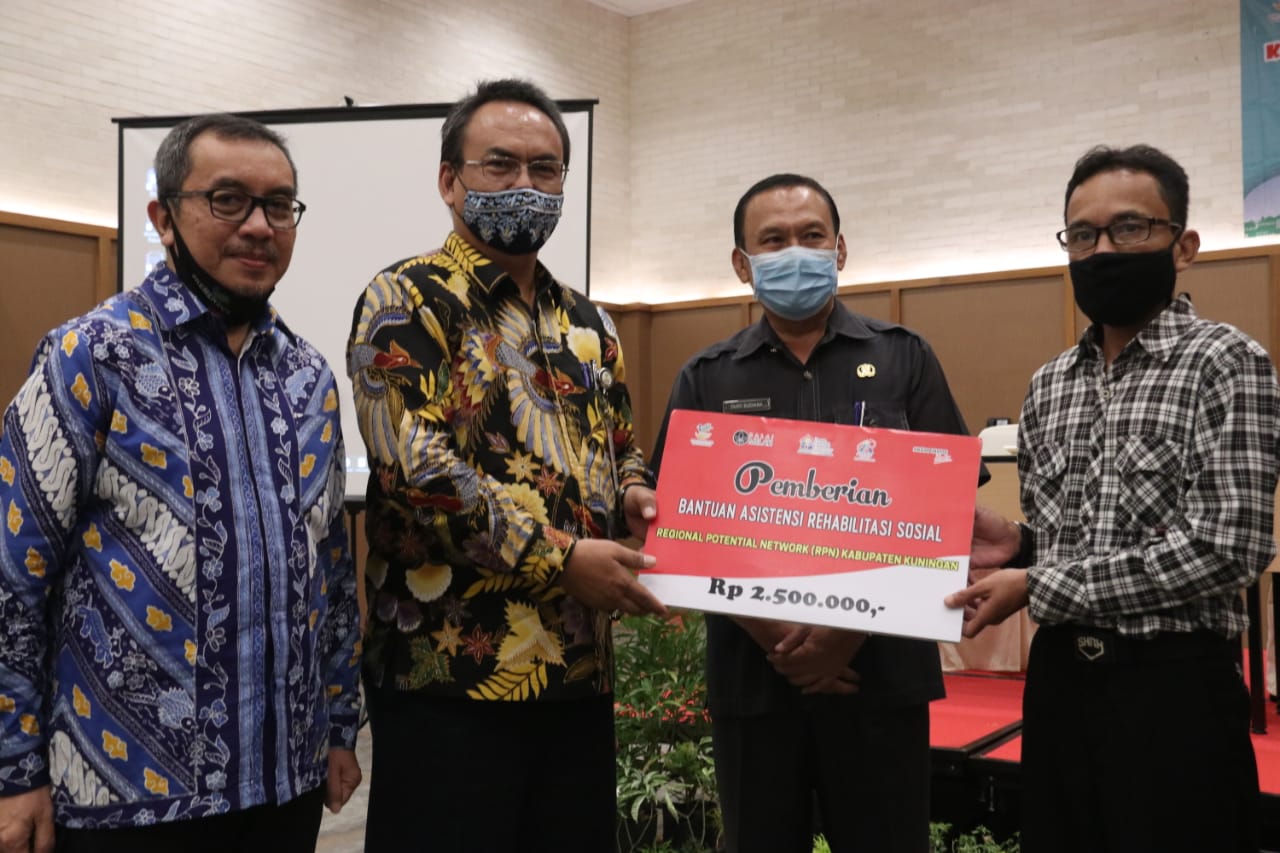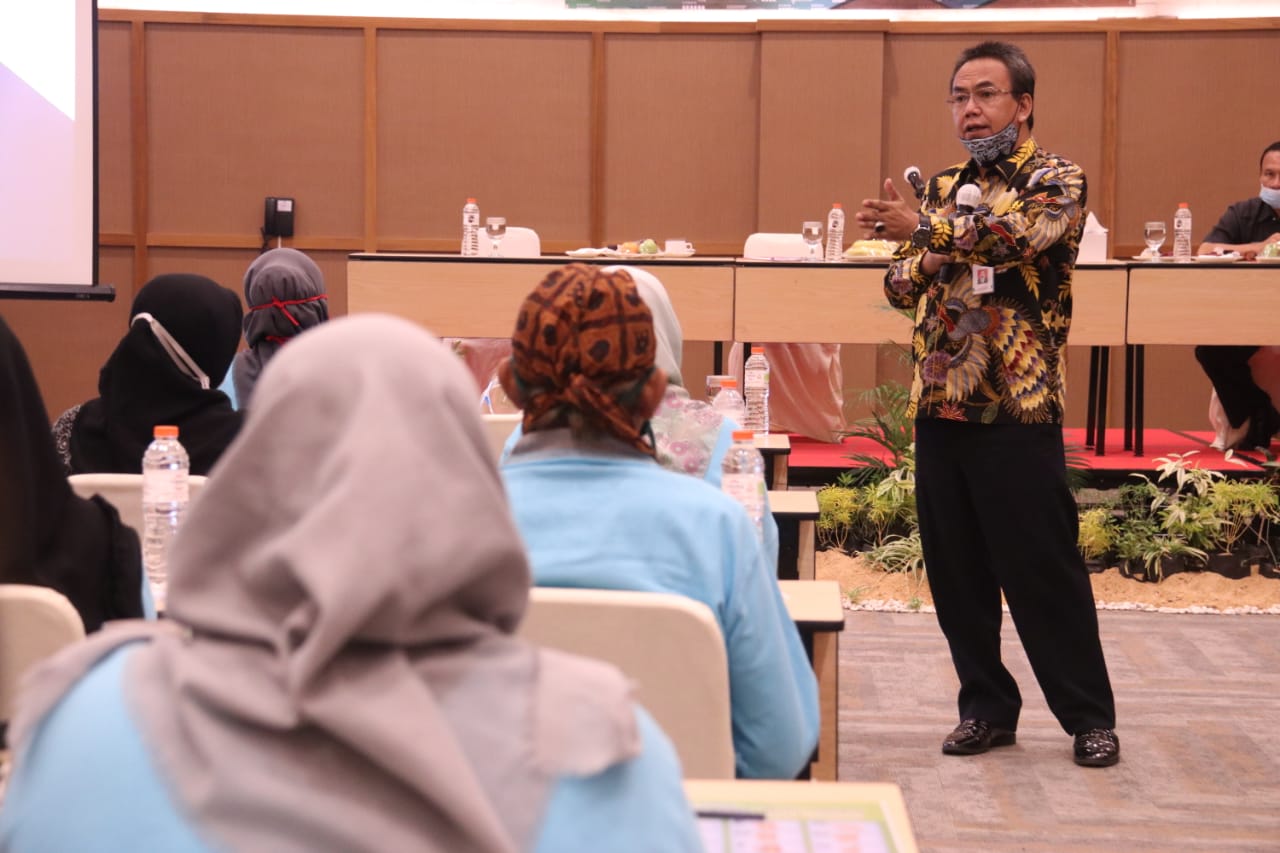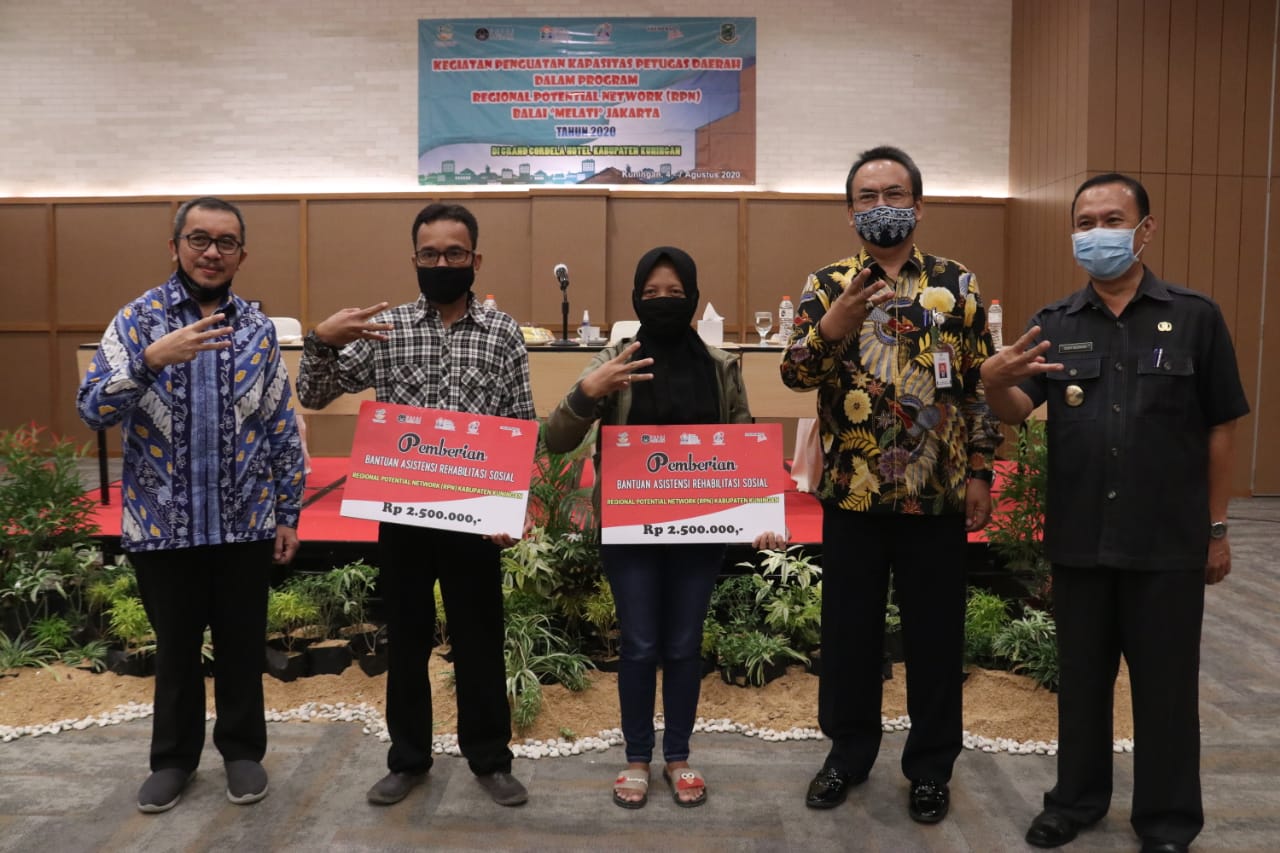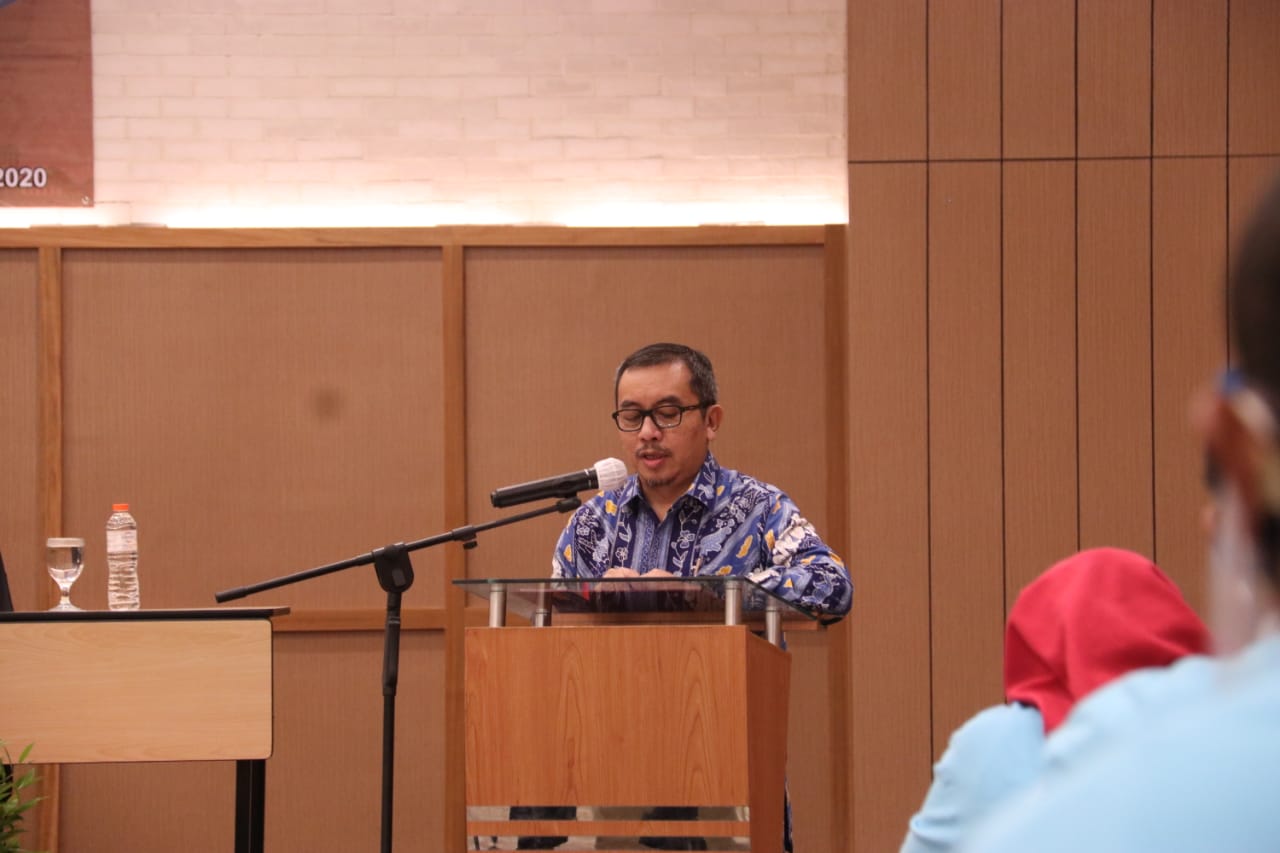KUNINGAN (August 5, 2020) - The Ministry of Social Affairs through the Directorate General of Social Rehabilitation to emphasize the importance of building networks to accelerate the accessibility for persons with disabilities as the implementation in the fight for the rights of persons with hearing and speech sensory disabilities (PDSRW). This was stated by the Director General of Social Rehabilitation of the Ministry of Social Affairs, Harry Hikmat at the opening ceremony of Strengthening the Capacity of Regional Officers in the Regional Potential Network (RPN) Program in Kuningan Regency, West Java, which was held by Social Rehabilitation Center “Melati” Jakarta.
"Build relationships with many parties so that our work is supported, especially when fighting for the rights of our deaf people," said Harry. Regional officers have the best practical experience in the field, are expected to be able to share information, because main foundation to build a network is willing to share information.
“The main basis for building a network is to be willing to share information, when we share new information, we collaborate, work together. Well, then with cooperation, coordination can be done," said Harry. Harry also emphasized the importance of exchanging information as the key in mobilizing a network in solving problems faced by persons with disabilities.
"Regarding the RPN, it is very important that we ensure common interests and goals, what we will achieve and take advantage of the network that will be developed," said Harry. Actions that can facilitate coordination (RPN) include identifying common interests and goals, using effective negotiation skills (expressing opinions, responding to opinions, arguing), securing coordination budgets, increasing awareness and interdependence, and standardizing activities. coordinated implementation of humanitarian programs.
"If it's like that, if there is a problem, it will be quickly responded to together, through teamwork together,, working together, coordinated and with a strong network," said Harry.
In order to facilitate coordination, Harry revealed the need for the identity of officers so that the parties who became partners knew what programs were being carried out, the goals and achievements of progress during the mentoring. In addition, it is necessary to map out the parties who will become partners so that officers know potential sources that can help solve problems faced by the beneficiaries.
"When a problem is found in the field, we look for who can be a network, build a network to solve the accessibility of people with problems, beneficiaries," said Harry. Furthermore, Harry emphasized the importance of the role of the local Social Service, especially the Regency/City Social Service as a coordination center related to social handling for people with disabilities.
“The family approach is a priority going forward. If there are residents who need social assistance, do an assessment first to find out how far family responsibilities can still be optimized," said Harry. Families need to be given the ability through activities Parenting Skill to be able to care for and nurture their children. Parents need to be facilitated so that they can provide the same understanding as the environment around them, so that children can grow and develop in a friendly environment for those who are hearing and speech sensory disabilities.
The RPN program is designed as a service activity that prioritizes synergy between institutions, attracting all stakeholders to be able to participate and contribute to the handling of PDSRW problems in the regions. RPN activities are expected to be able to optimize efforts to deal with PDSRW problems that are still experiencing discrimination, emergency conditions, unable to participate fully in society and experiencing obstacles in their development period.
This activity to strengthen the capacity of regional officers in the RPN program aims to provide debriefing for regional officers who accompany the RPN program as representatives of regional offices in providing social rehabilitation assistance for persons with sensory hearing and speech sensory disabilities. Participants will later gain knowledge about the pattern of handling people with speech-hearing sensory disabilities, how to manage independence assistance provided to people with speech-hearing sensory disabilities and how assistance efforts must be made.
This event lasted for 4 days starting on August 4, 2020. The participants who attended the activity were representatives from the Kuningan Regency Social Service, the Kuningan Regency Labor Social Service, SLB Part B teaching staff, Disability Facilitators, District Social Welfare Workers (TKSK), Social Workers Community (PSM) and Disabled Persons Organizations (OPD).
 English
English
 Bahasa
Bahasa




